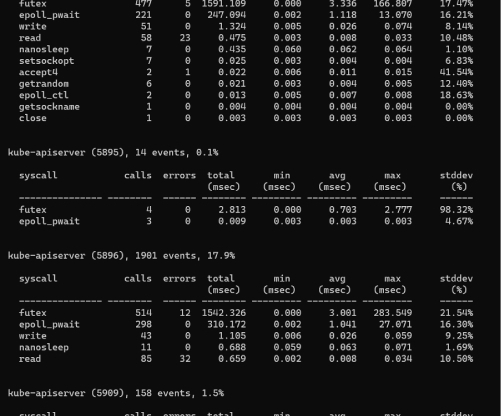In the realm of operating systems, understanding the efficiency of system calls is crucial for optimizing software performance. System calls serve as the bridge between user-level applications and the kernel, facilitating essential operations such as file I/O, process management, and network communication. However, every system call incurs a certain overhead in terms of time, which can impact the overall performance of an application. In this blog post, we delve into the estimated time overhead of system calls on Linux, shedding light on factors that influence this overhead and strategies for minimizing it.
What Are System Calls?
Before delving into their overhead, let’s briefly review what system calls are. In simple terms, a system call is a request made by a user-level process to the operating system kernel, asking it to perform privileged operations on its behalf. These operations include tasks like reading from or writing to files, creating new processes, and managing memory.
Understanding Time Overhead:
When a process makes a system call, it transitions from user mode to kernel mode, which involves a context switch. This transition incurs overhead primarily due to the need to save and restore the process’s state. Additionally, the kernel performs various checks and operations to fulfill the requested task. All these activities contribute to the overall time overhead of a system call.
Factors Influencing Time Overhead
Several factors influence the time overhead of system calls on Linux:
- System Load: The overall system load, including CPU utilization and I/O activity, can impact the response time of system calls. High system load may result in longer wait times for system call execution.
- Kernel Configuration: Certain kernel configurations and optimizations can affect the efficiency of system calls. Tweaking kernel parameters or using different kernel versions may lead to variations in time overhead.
- Hardware Architecture: The underlying hardware architecture, including CPU type, memory hierarchy, and I/O devices, can influence system call performance. Modern processors with features like out-of-order execution may mitigate overhead to some extent.
- System Call Type: Different types of system calls exhibit varying levels of overhead. For instance, system calls involving disk I/O or network communication typically incur higher overhead compared to those involving purely computational tasks.
Strategies for Minimizing Overhead
While system call overhead is inherent to the operating system’s design, developers can employ several strategies to minimize its impact:
- Batch System Calls: Instead of making frequent individual system calls, batch multiple related operations into a single call wherever possible. This reduces the overhead associated with context switching.
- Use Asynchronous I/O: Leveraging asynchronous I/O techniques allows applications to continue executing while waiting for I/O operations to complete, thus reducing idle time spent in system calls.
- Optimize Algorithm Design: Carefully designing algorithms to minimize the number of system calls can significantly improve overall performance. For example, employing memory-mapped I/O can eliminate the need for explicit read and write system calls in certain scenarios.
- Kernel Tuning: Tweaking kernel parameters or using custom kernel configurations tailored to specific workload requirements can help optimize system call performance.
Conclusion
In conclusion, understanding the estimated time overhead of system calls on Linux is essential for optimizing the performance of software applications. While system call overhead is inevitable, developers can employ various strategies to mitigate its impact and improve overall efficiency. By considering factors such as system load, kernel configuration, and hardware architecture, developers can make informed decisions to optimize system call performance and enhance the responsiveness of their applications.


